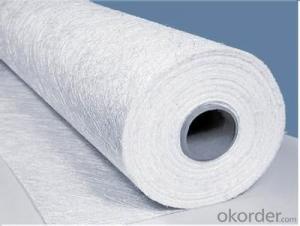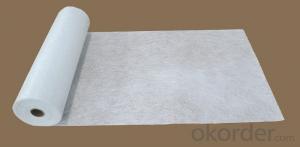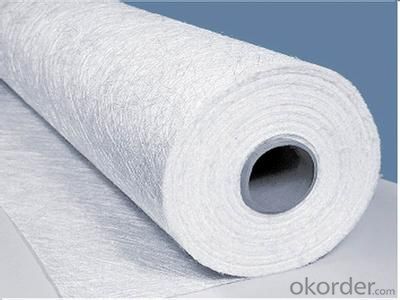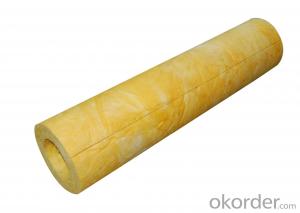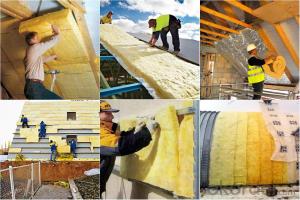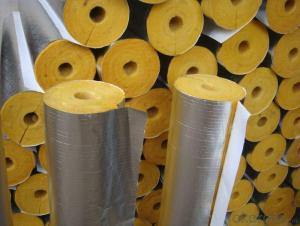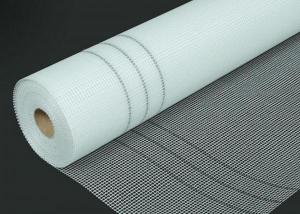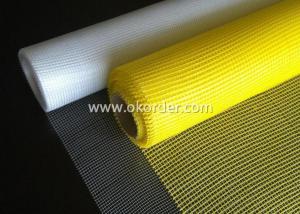E Glass Powder Chopped Strand Mat For Filament Winding
- Loading Port:
- Shanghai
- Payment Terms:
- TT OR LC
- Min Order Qty:
- 20000 kg
- Supply Capability:
- 200000 kg/month
OKorder Service Pledge
OKorder Financial Service
You Might Also Like
1.Brief Introduction
E-Glass Powder Chopped Strand Mat is made of randomly distributed chopped strands held together by a powder binder.
It is compatible with UP, VE, EP, PF resins.
The roll width ranges from 50mm to 3300mm.
2.Product Features
Fast breakdown in styrene
High tensile strength, allowing for use in hand lay-up process to produce large-area parts
3.Product Specifications
Property | Area Weight | Moisture Content | Size Content | Breakage Strength | Width |
(%) | (%) | (%) | (N) | (mm) | |
Property | IS03374 | ISO3344 | ISO1887 | ISO3342 | |
EMC80P | ±7.5 | ≤0.20 | 8-12 | ≥40 | 50-3300 |
EMC100P | ≥40 | ||||
EMC120P | ≥50 | ||||
EMC150P | 4-8 | ≥50 | |||
EMC180P | ≥60 | ||||
EMC200P | ≥60 | ||||
EMC225P | ≥60 | ||||
EMC300P | 3-4 | ≥90 | |||
EMC450P | ≥120 | ||||
EMC600P | ≥150 | ||||
EMC900P | ≥200 |
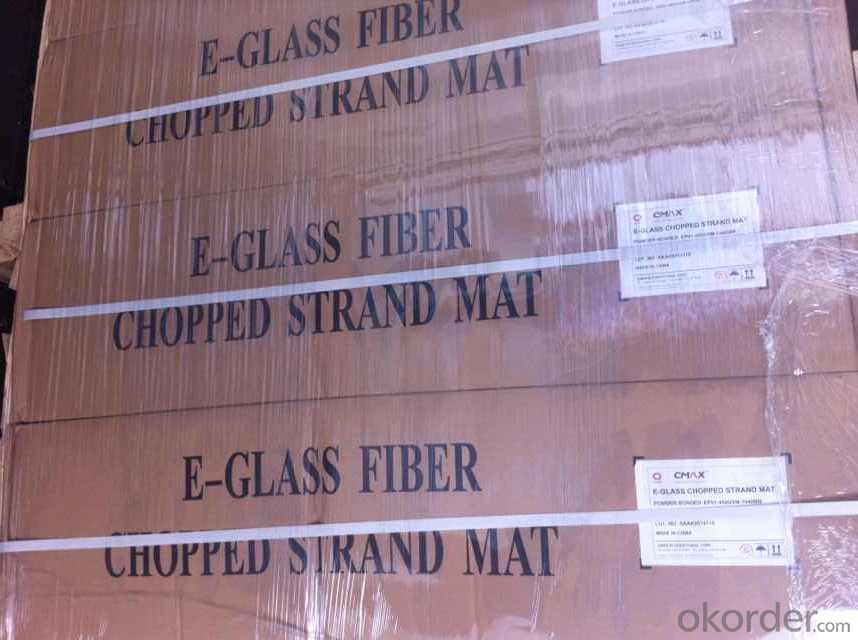
4.FAQ
Storage:
Unless otherwise specified, Chopped Strand Mat should be stored in a dry, cool and rain-proof area. It is recommended that the room temperature and humidity should be always maintained at 15℃~35℃ and 35%~65% respectively.
- Q:Can fiberglass mat tissue be used for repairing fiberglass canoes?
- Yes, fiberglass mat tissue can be used for repairing fiberglass canoes. It is commonly used to reinforce and strengthen the damaged areas of the canoe by providing additional structural support.
- Q:Can fiberglass mat tissue be used for making furniture?
- No, fiberglass mat tissue is not suitable for making furniture. It is primarily used in composite materials and construction applications, not for furniture manufacturing.
- Q:Can fiberglass mat tissue be used for insulation?
- Yes, fiberglass mat tissue can be used for insulation. It is commonly used in the construction industry as a thermal and sound insulation material. The fiberglass mat tissue is made up of fine fibers of glass that are woven into a mat-like structure. This structure traps air and creates a barrier that helps to reduce heat transfer, keeping the desired area insulated and maintaining a comfortable temperature. Additionally, fiberglass mat tissue is also resistant to moisture, fire, and pests, making it a suitable choice for insulation in various applications.
- Q:Can fiberglass mat tissue be used for reinforcing fiberglass tanks?
- Certainly, fiberglass tanks can be reinforced using fiberglass mat tissue. Fiberglass mat tissue, a lightweight and thin material, is commonly utilized in the construction of fiberglass products. Its purpose is to fortify the fiberglass structure, offering added durability and strength. In the specific case of fiberglass tanks, the mat tissue serves as a layer of reinforcement, further enhancing the tank's overall structural integrity. This reinforcement assists in preventing cracks, improving impact resistance, and augmenting the tank's ability to withstand external forces and pressure. Moreover, fiberglass mat tissue boasts ease of use, enabling simple molding or application onto the tank's surface, thus rendering it a suitable choice for tank reinforcement.
- Q:What are the potential limitations of using fiberglass mat tissue?
- There are several potential limitations of using fiberglass mat tissue. Firstly, fiberglass mat tissue is relatively brittle compared to other materials. This means that it may be prone to cracking or breaking under certain conditions, especially if it is subjected to high levels of stress or impact. This can limit its use in applications where durability and flexibility are important. Secondly, fiberglass mat tissue is not inherently resistant to moisture. If exposed to water or high humidity for extended periods of time, it may absorb moisture and lose its structural integrity. This can make it unsuitable for use in environments where moisture resistance is a critical requirement. Additionally, fiberglass mat tissue can be challenging to work with due to its sharp edges and fibers. Special precautions, such as wearing protective clothing and using proper handling techniques, are necessary to avoid injury. This can increase the complexity and cost of using fiberglass mat tissue in certain applications. Furthermore, fiberglass mat tissue may release fine particles or fibers into the air when cut or manipulated. These particles can pose health risks if inhaled, potentially leading to respiratory issues or irritation. Proper safety measures, such as using masks and adequate ventilation, must be taken to minimize these risks. Lastly, fiberglass mat tissue is a relatively expensive material compared to some alternatives. Its production process involves multiple steps and specialized equipment, which can contribute to higher costs. This can limit its use in applications where cost-effectiveness is a primary consideration. Overall, while fiberglass mat tissue offers various advantages in terms of strength, insulation, and fire resistance, its potential limitations should be carefully considered before selecting it for a specific application.
- Q:How does the thickness of fiberglass mat tissue affect its flexibility?
- The thickness of fiberglass mat tissue typically has an inverse relationship with its flexibility. As the thickness of the mat tissue increases, its flexibility decreases. Thicker mat tissues are stiffer and less pliable, making them less flexible compared to thinner ones.
- Q:Can fiberglass mat tissue be used for insulation in shopping malls?
- Indeed, insulation in shopping malls can incorporate the utilization of fiberglass mat tissue. This material is widely employed and proven to be efficient for thermal insulation owing to its low thermal conductivity and exceptional resistance to heat transfer. Moreover, fiberglass mat tissue possesses the advantage of being non-combustible, rendering it a secure choice for commercial structures such as shopping malls. Furthermore, its lightweight nature facilitates effortless installation, and its superb sound absorption properties contribute to establishing a pleasant and serene ambiance in the mall. All in all, fiberglass mat tissue emerges as an appropriate selection for insulation in shopping malls, ensuring energy efficiency and enhanced indoor comfort.
- Q:Does fiberglass mat tissue require any special precautions during handling?
- Yes, fiberglass mat tissue does require some special precautions during handling. Fiberglass mat tissue is made up of tiny glass fibers that can cause irritation to the skin, eyes, and respiratory system if not handled properly. It is important to wear protective clothing, such as gloves, long sleeves, and goggles, to minimize direct contact with the skin and eyes. Additionally, it is advisable to work in a well-ventilated area or wear a respirator to prevent inhaling the airborne fiberglass particles. It is also recommended to handle fiberglass mat tissue gently to avoid breaking the fibers and creating more airborne particles. Overall, taking these precautions will help minimize the potential health risks associated with handling fiberglass mat tissue.
- Q:Is fiberglass mat tissue suitable for underground applications?
- Fiberglass mat tissue is indeed suitable for underground applications. This material is commonly used in various industries, including construction, infrastructure, and plumbing, due to its exceptional strength, durability, and resistance to environmental factors. Underground environments often pose challenges such as moisture, high humidity, and corrosive substances, which can compromise the integrity of traditional materials. However, fiberglass mat tissue is specifically designed to withstand these conditions, making it an ideal choice for underground applications. Additionally, its non-combustible nature and resistance to chemicals make it a reliable option for areas where fire safety is a concern. Overall, fiberglass mat tissue is a versatile and reliable material that can effectively withstand the challenges of underground environments.
- Q:Is fiberglass mat tissue suitable for railway rolling stock?
- Yes, fiberglass mat tissue is suitable for railway rolling stock. Fiberglass mat tissue is a lightweight and durable material that is commonly used in the construction industry for various applications, including in the manufacturing of railway rolling stock. It offers excellent mechanical strength and resistance to corrosion, making it ideal for use in the harsh and demanding environments that railway rolling stock typically operates in. Additionally, fiberglass mat tissue has good thermal insulation properties, which can help to improve the energy efficiency of the rolling stock. Overall, fiberglass mat tissue is a suitable and reliable choice for the construction and maintenance of railway rolling stock.
1. Manufacturer Overview |
|
|---|---|
| Location | |
| Year Established | |
| Annual Output Value | |
| Main Markets | |
| Company Certifications | |
2. Manufacturer Certificates |
|
|---|---|
| a) Certification Name | |
| Range | |
| Reference | |
| Validity Period | |
3. Manufacturer Capability |
|
|---|---|
| a)Trade Capacity | |
| Nearest Port | |
| Export Percentage | |
| No.of Employees in Trade Department | |
| Language Spoken: | |
| b)Factory Information | |
| Factory Size: | |
| No. of Production Lines | |
| Contract Manufacturing | |
| Product Price Range | |
Send your message to us
E Glass Powder Chopped Strand Mat For Filament Winding
- Loading Port:
- Shanghai
- Payment Terms:
- TT OR LC
- Min Order Qty:
- 20000 kg
- Supply Capability:
- 200000 kg/month
OKorder Service Pledge
OKorder Financial Service
Similar products
New products
Hot products
Hot Searches
Related keywords
